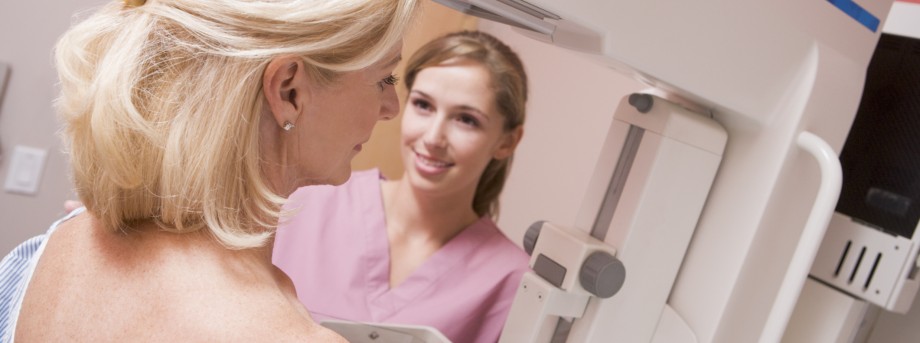The University of Nottingham
 Exchange online
Exchange online
Research Exchange
Researchers identify seven types of breast cancer for more accurate prognosis

A study by researchers in Nottingham has identified seven distinct types of breast cancer, a discovery which could lead to new and improved prognostic tests for patients with the disease.
The findings, reported in the British Journal of Cancer, could revolutionise the way in which breast cancer patients are treated by giving clinicians more detailed information about a patient’s breast cancer type and helping them create a more personalised treatment plan, avoiding over or under-treatment.
The research, funded by Breast Cancer Campaign, was led by Dr Andy Green in the University’s Division of Oncology, in collaboration with colleagues at Nottingham University Hospitals NHS Trust and Nottingham Trent University.
Dr Green said: “With an increasing number of treatment options available for breast cancer patients, decision making regarding the choice of the most appropriate treatment method is becoming increasingly complex. Improvements in care and outcome for patients with breast cancer will involve improved targeting of effective therapies to appropriate patients.
“Equally important should be improvement in parallel strategies to avoid unnecessary or inappropriate treatment and side effects.”
Affordable test
Breast cancer is a biologically complex disease and each tumour can have very different properties, so the more information that doctors have about each patient’s cancer, the better they can plan treatments. Currently just two proteins are tested for as standard in breast cancer cells (known as biomarkers): the oestrogen receptor (ER), and human epidermal growth factor receptor 2 (HER2), alongside information about the tumour size, spread and grade[1],[2],[3].
Dr Green and colleagues, who also included Professor Ian Ellis in the Division of Oncology and Jon Garibaldi and Daniele Soria in the University’s School of Computer Science, wanted to see if, by testing for more biomarkers, but keeping the number of biomarkers as low as possible to make an affordable test a realistic proposition, they could devise categories that better reflect the diversity of breast cancer and, importantly, better predict how a patient’s cancer is likely to progress.
Using tissue that now forms part of the Breast Cancer Campaign Tissue Bank, the team tested 1073 tumour samples and from these, 997 (93%) fitted perfectly into one of seven classes, whereas 76 (7%) had mixed characteristics and couldn’t be put into a distinct category. They then verified these classes in another 238 tumour samples.
The seven classes are defined by different combinations and levels of ten biomarkers found in breast cancer cells. These biomarkers include ER and HER2, the two biomarkers currently tested for in clinics, but also others that are not currently tested for, such as p53, cytokeratins, HER3 and HER4.
Improved survival
To test whether the new classes could give doctors more information about prognosis, Dr Green’s team compared the classes to survival outcomes from the patient samples. Each of the seven classes was found to have its own unique survival outcome. This indicates that the classes can tell us more about prognosis and help doctors to fine-tune treatment plans to improve survival.
Importantly, the technology required to measure protein biomarkers in tumour samples is already in place in most pathology laboratories across the UK, whereas newly developed genetic profiling tests such as Oncotype DX need to be sent to specialist laboratories, which brings additional costs.With further support including from the Medical Research Council and the University of Nottingham, Dr Green and his colleagues, together with Nottingham Prognostics Limited, have now developed a diagnostic test using these seven distinct classes, which could be ready for use in the clinic in as little as two years. The test, called the Nottingham Prognostic Index Plus (NPI+), integrates the seven new classes into the existing Nottingham Prognostic Index test currently used by pathologists to assess information about tumour size, spread and grade.
Baroness Delyth Morgan, Chief Executive of Breast Cancer Campaign said, “The days of one size fits all treatment are well and truly in the past. We need to ensure the life-saving and life-extending treatments we already have in the clinic are used more effectively – directing the right treatments to those who will benefit, and sparing others from unnecessary side effects, so that by 2050 we can achieve our ambition to overcome breast cancer.
“This new test could be a realistic step towards making the holy grail of personalised treatment a reality, offering hope to the 50,000 women diagnosed with breast cancer in the UK every year.
“Improved prognostic tests, such as NPI+, will be essential pieces of kit for our diagnostic toolbox. We look forward to seeing the results from external validation studies using cases from the UK, USA and Europe and hope that a subsequent feasibility study will allow this exciting work to be fast-tracked into the clinic.”
Leave a Reply
Other

Top prize for quantum physicist
A University of Nottingham physicist has won a prestigious medal from the Institute of Physics for […]

Zero carbon HOUSE designed and built by students comes home
Design and construct a low cost, zero carbon, family starter home, transport it to Spain, build […]